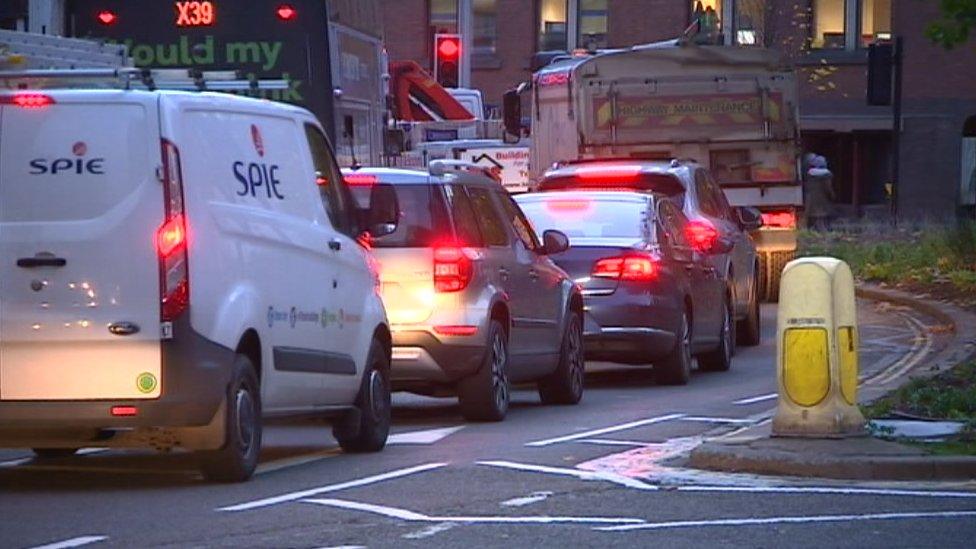Bristol's diesel congestion charge 'may not be needed'
- Published
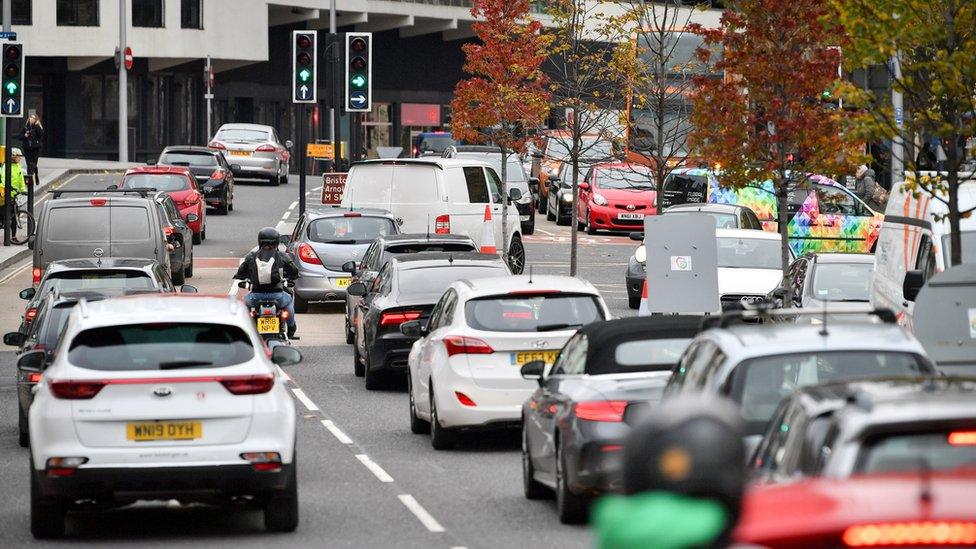
Bristol has suffered from poor air quality for many years
Congestion charges and bans for the most polluting vehicles might now not be necessary, Bristol's mayor has said.
The city has suffered from poor air quality, particularly high levels of nitrogen dioxide, and was told by the government this had to change.
Elected mayor Marvin Rees said a drop in traffic due to Covid-19, along with other initiatives, meant it could achieve legal air quality levels.
But he stopped short of announcing the current plans would be scrapped.
He said while the city would not get back to the lockdown levels, a change to work and travel patterns had helped improve the air.
"If we can maintain the best of those changes... we believe we will be able to pursue a plan to get us the compliance in the shortest possible time in a way that doesn't actually charge individuals and businesses.
"That would be the best of all worlds. If we can get to compliance without further compounding their economic woes that would be the best for Bristol."
A further decision is expected "early in 2021".
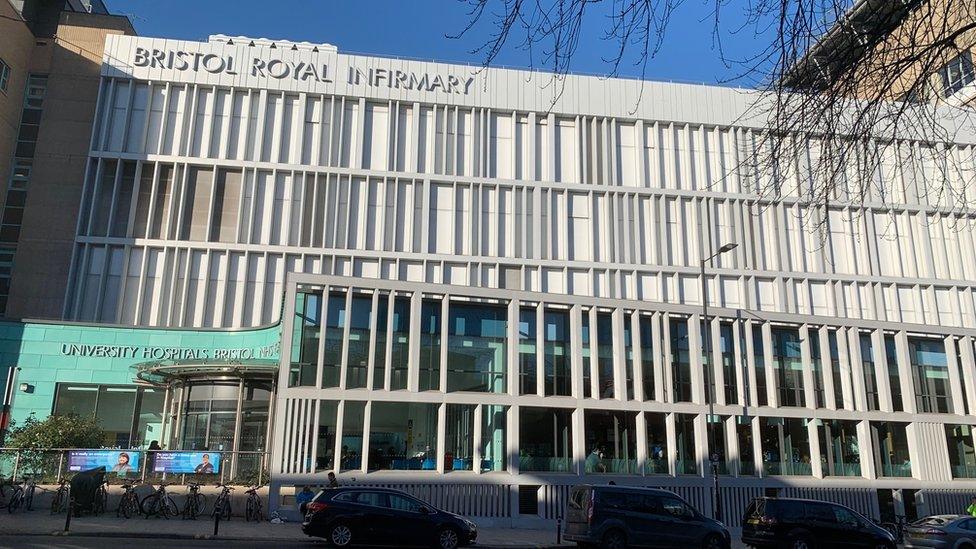
Marlborough Street is the most polluted road in Bristol and runs past the Bristol Royal Infirmary
Mr Rees said he would be "accelerating" plans to pedestrianise part of the old city area while introducing "sustainable transport, walking and cycle routes".
Bristol had been set to be the UK's first city to ban diesel cars from entering parts of the city centre in an attempt to cut air pollution.
Last year it proposed an inner-city ban on private diesel vehicles that would operate between 07:00 and 15:00.
But following feedback the plan was altered to allow diesel cars to access Cabot Circus car park from the M32.
That change was criticised for allowing access to the city's shopping centre but not the nearby Bristol Royal Infirmary (BRI).
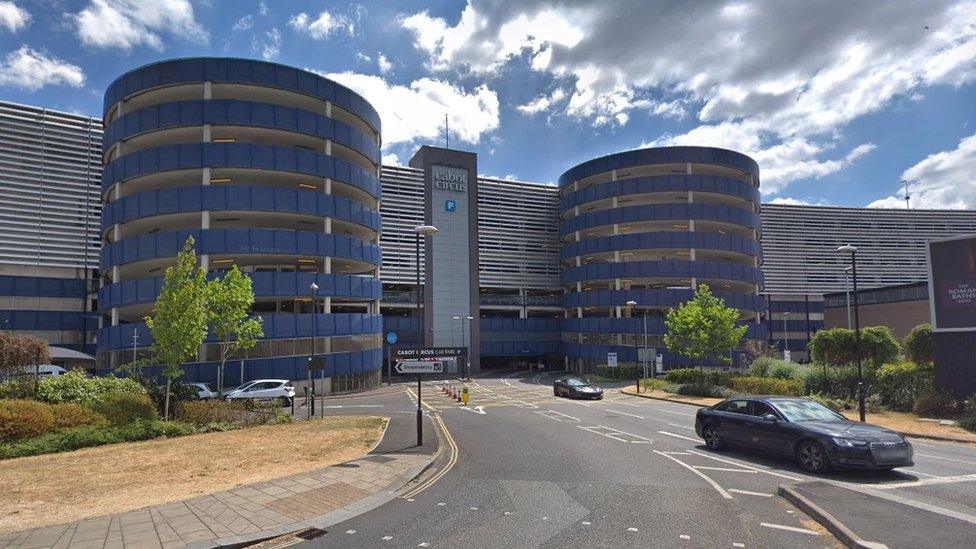
Cabot Circus shopping centre car park is close to the end of the M32, which links the city to the nearby M4 and M5 motorways
- Published18 August 2020
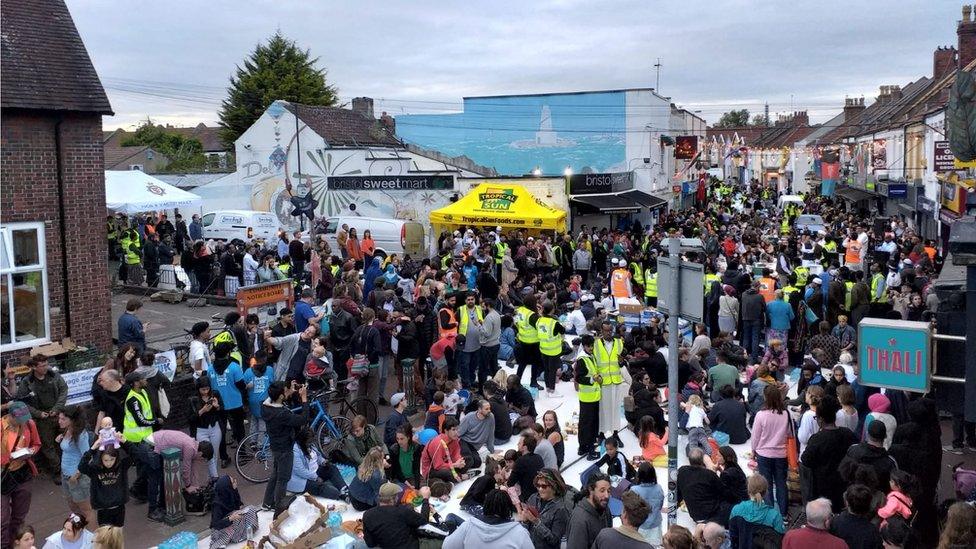
- Published14 May 2020
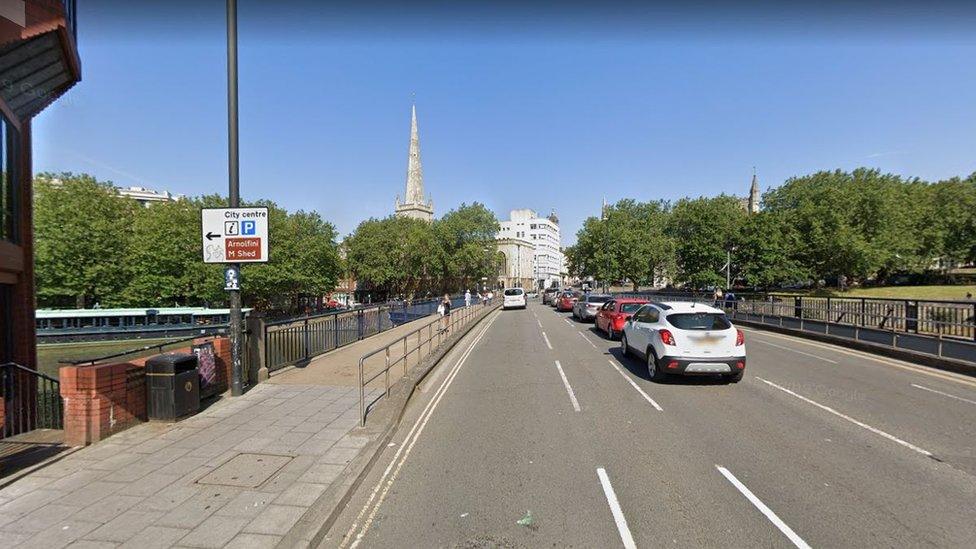
- Published2 February 2020

- Published3 November 2019
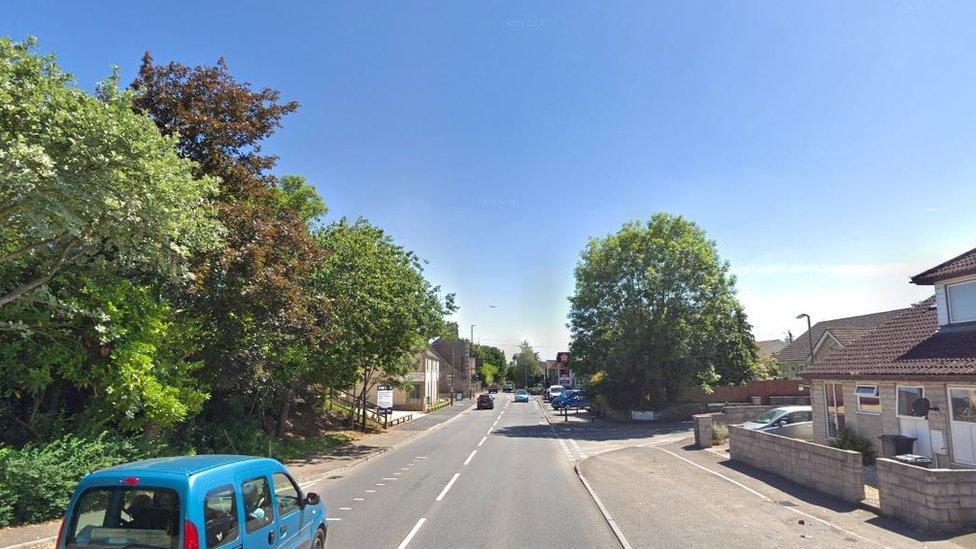
- Published5 November 2019
